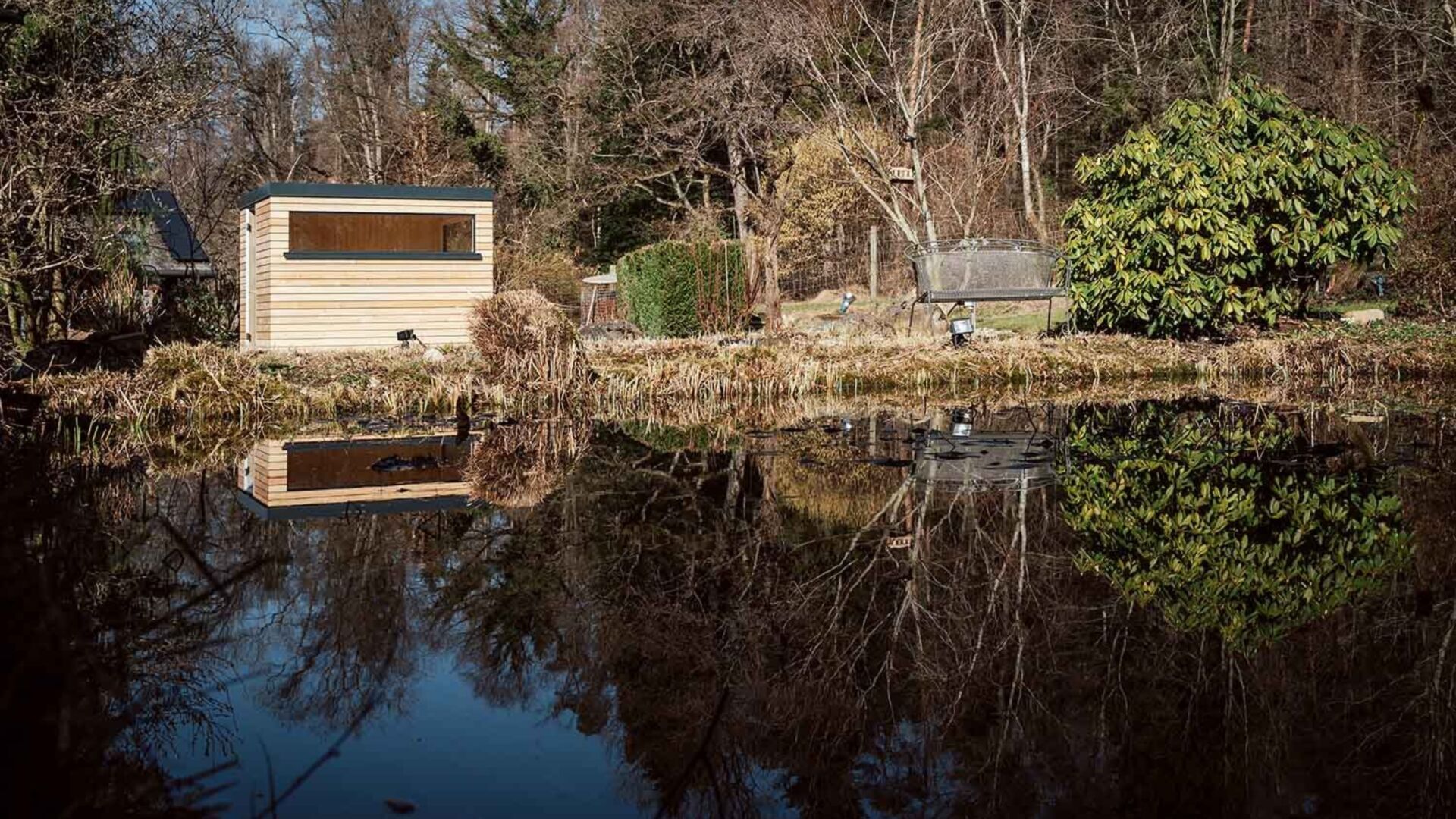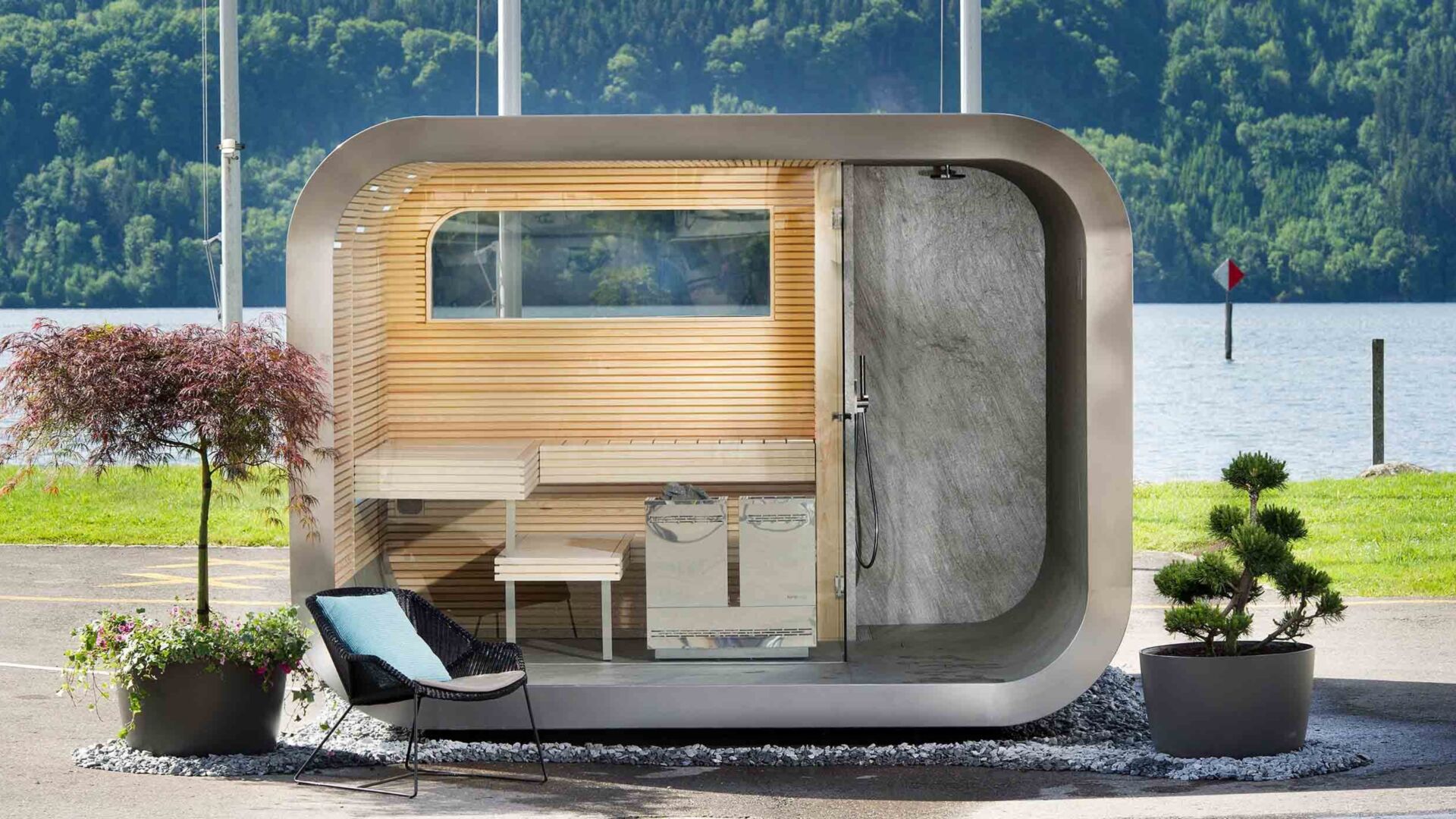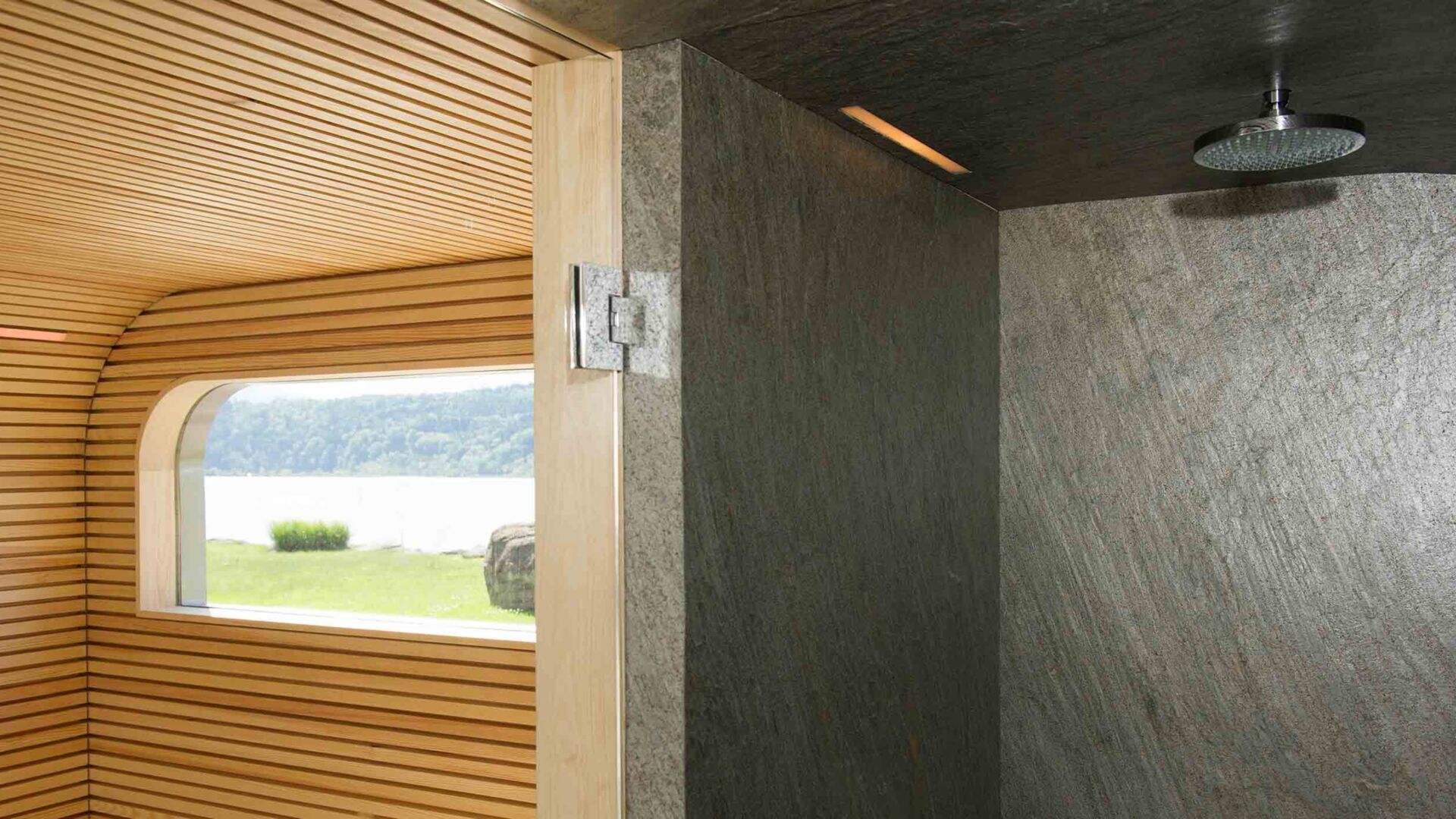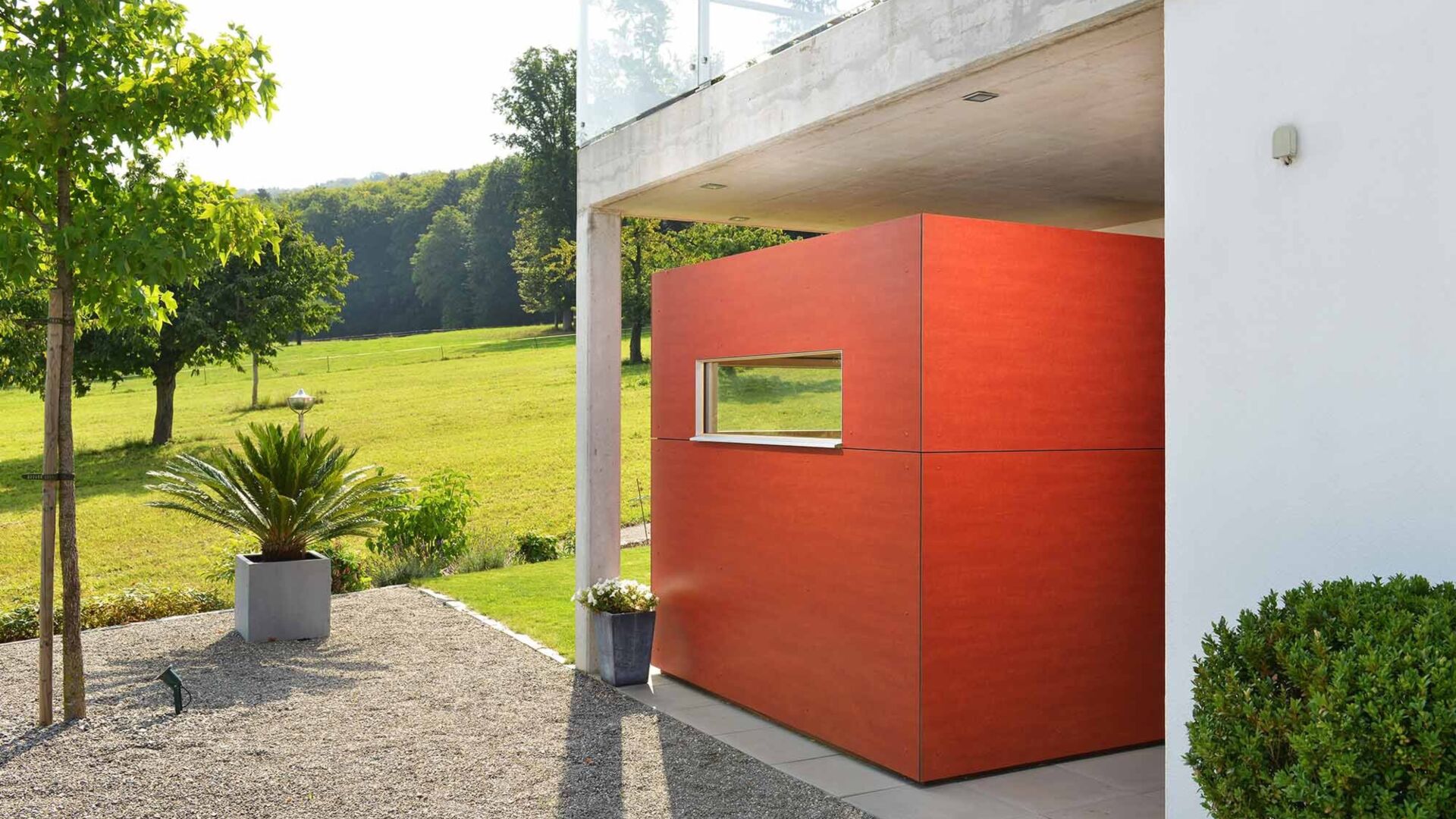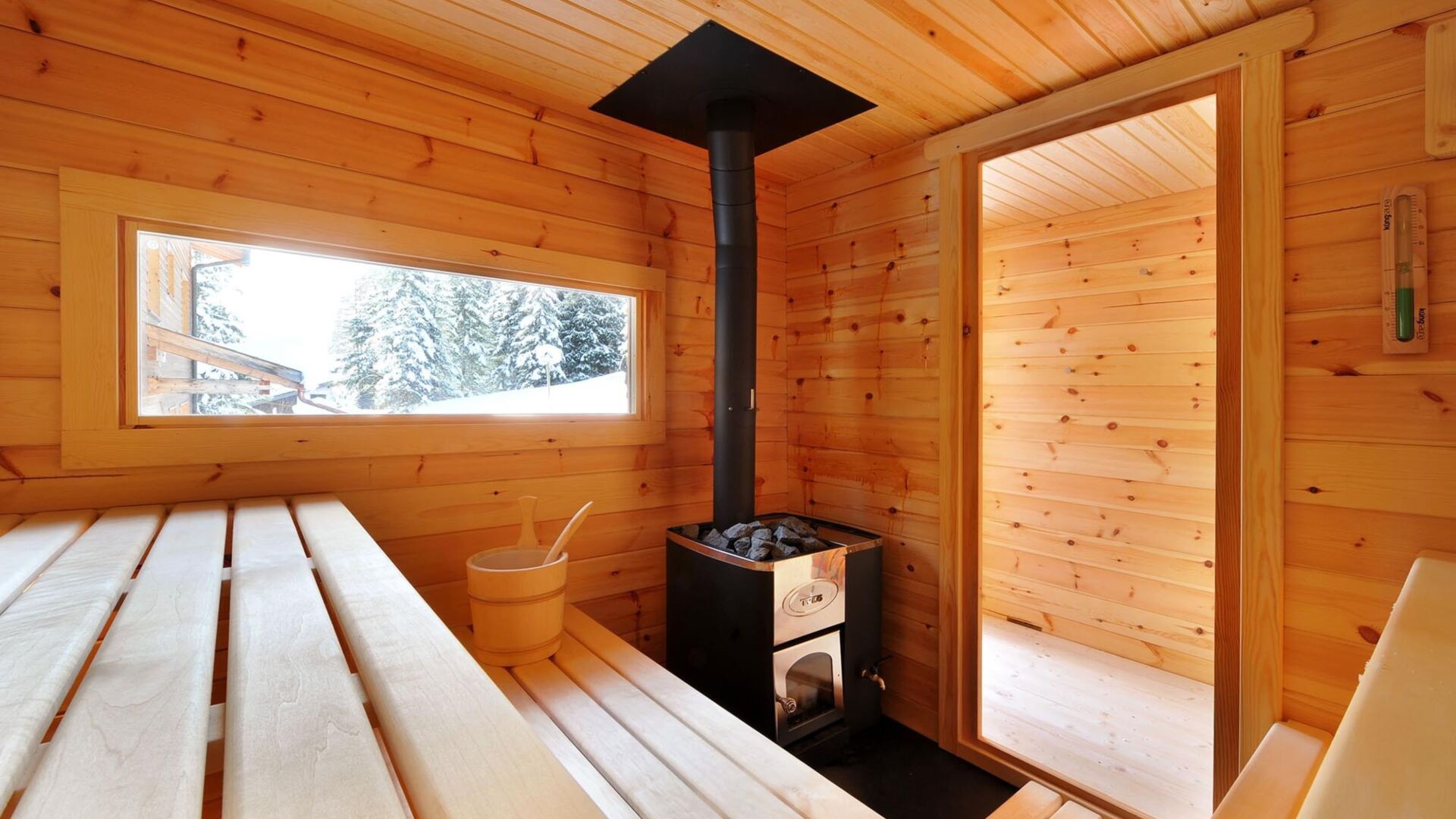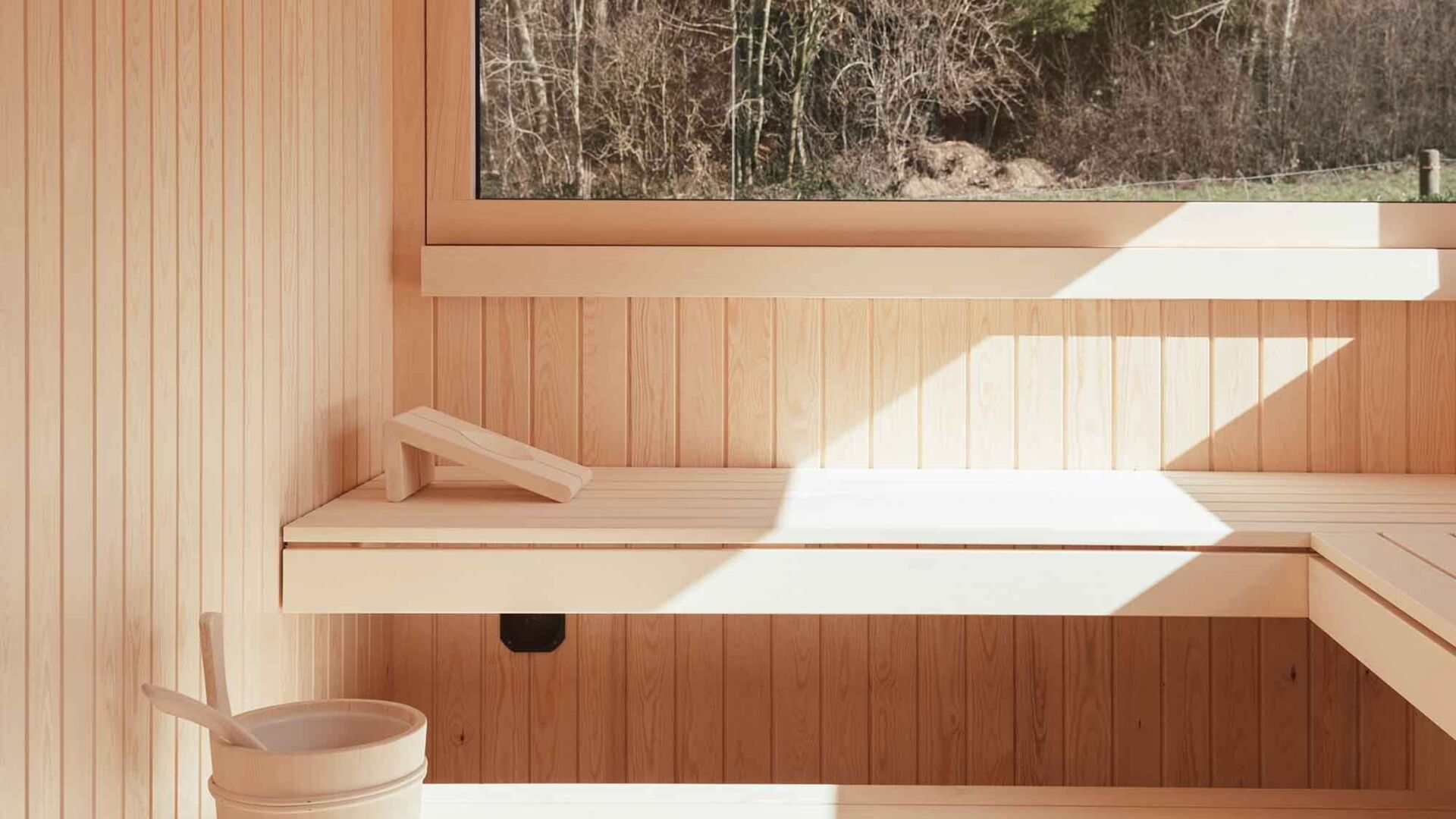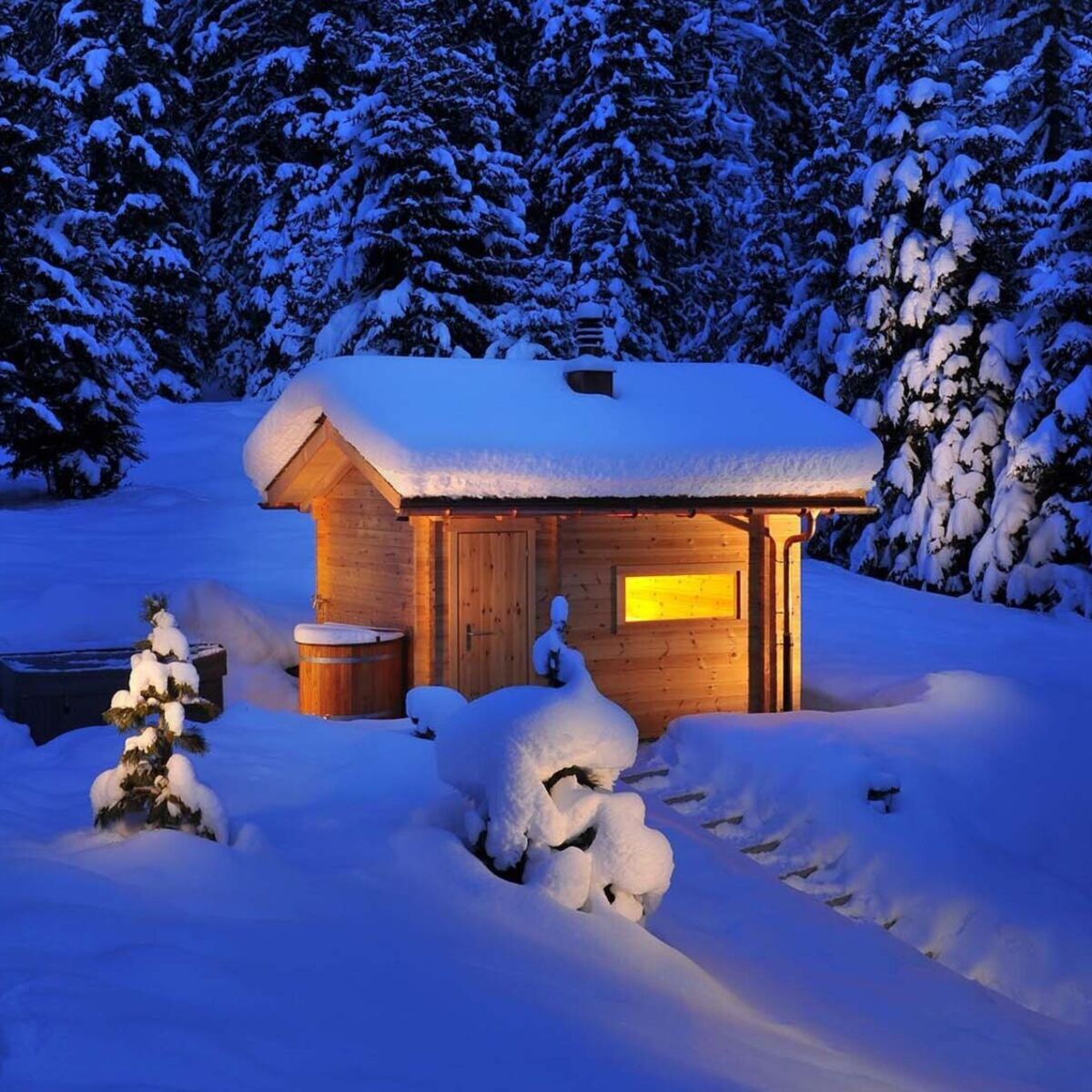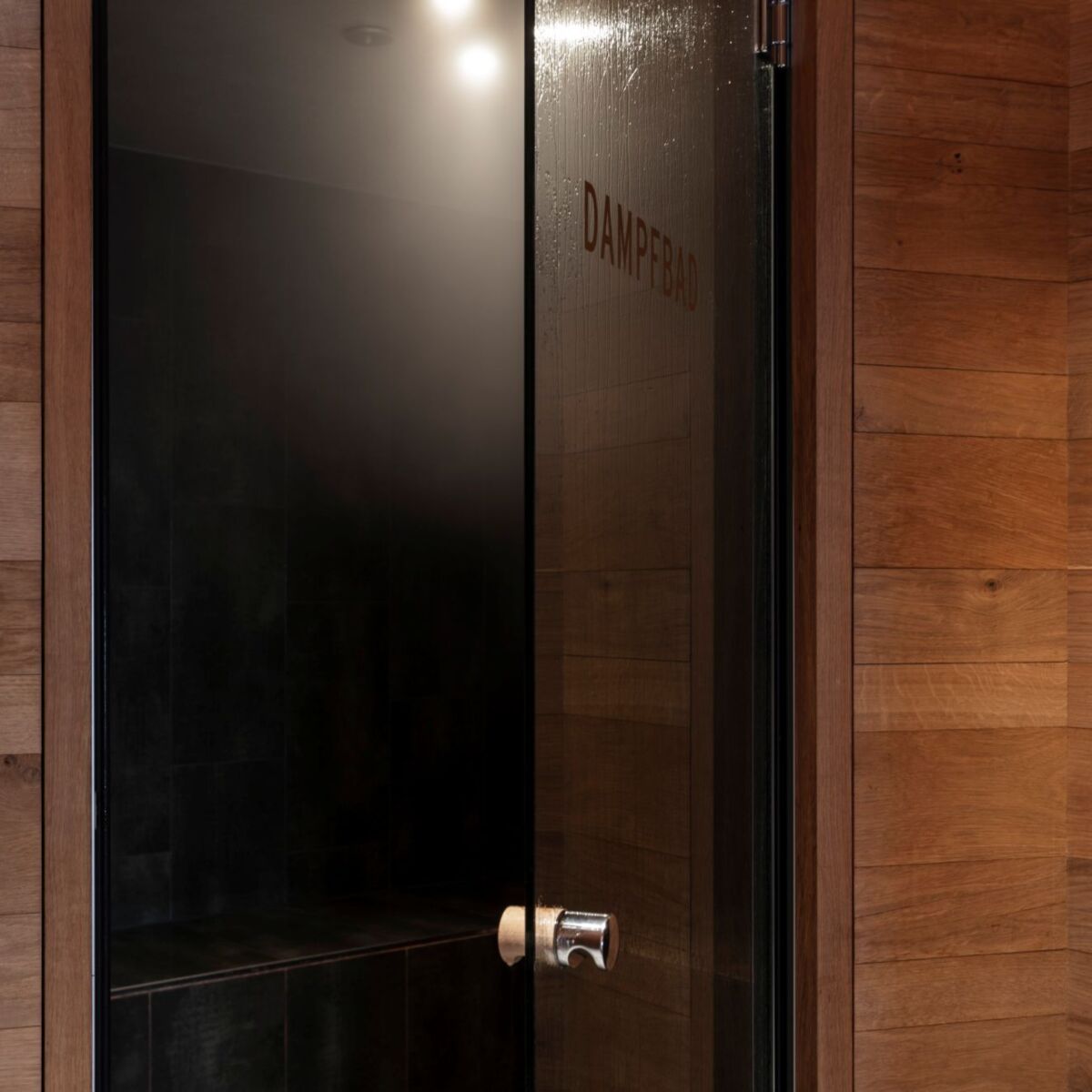Sweating outdoors
Do you dream of wellness and relaxation with a view of the countryside? Then an outdoor sauna is just the thing for you. An outdoor sauna offers many advantages over the classic indoor sauna, as our Nido Outdoor model shows, for example. What is important when buying and planning an outdoor sauna, you will learn in the following article with the most important questions on the subject and valuable planning tips.

- What advantages does an outdoor sauna offer?
- Modular construction kit
- How much space is needed to assemble a Nido Outdoor
- What is the difference to an indoor sauna?
- What connections are necessary for installing a shower?
- Does a garden sauna need a foundation and what are the specifications for the terrace?
- Which locations are ideal for installing an outdoor sauna?
- How do I plan an outdoor sauna?
- How much does an outdoor sauna cost?
- How does the control system work?
- What power supply line is required for operation?
- What insulation value is recommended for the outdoor sauna?
- How heavy can the sauna be on a roof terrace or flat roof?
- When do I need a building permit?
- What about fire protection requirements?
- Is the sauna heatable with a wood stove? What do I have to consider here?
- Which lighting is recommended?
- What options for privacy screens does Küng offer for an outdoor sauna?
Modular construction kit
- An outdoor sauna can be placed on the terrace, in the garden or even on flat roofs.
- With individual design and layout made to measure, an outdoor sauna integrates harmoniously into any natural environment.
- Our modular outdoor sauna Nido Outdoor is delivered in one piece and is ready for the first sauna session in no time.
- You can obtain a building permit with specifications on the permitted size and distance regulations from the local building authority.
- A power line is necessary for operation. This should be installed by an electrician.
- A stable foundation is important.
What is the difference to an indoor sauna?
In contrast to the indoor sauna, the installation takes place outside, which also results in higher requirements for the construction and the materials used. In the garden, a foundation is important and, in general, the sauna must be designed to be weather-resistant in order to withstand snow, rain and wind in the long term. However, with a stronger wall construction and the necessary insulation, this is not a problem with the outdoor sauna.
Which locations are ideal for installing an outdoor sauna?
In principle, your own garden is ideal for the outdoor sauna, for example next to the garden pool. Under certain conditions, it is also possible to install the sauna on a terrace, on the flat roof of your house or in unusual places such as on the roof of a carport. It is important that the distance from the sauna to the control panel does not exceed 20 metres, unless the control panel is attached directly to the sauna.
How does the control system work?
The control panel is located in the outdoor sauna itself as standard. Optionally, the control panel can also be routed up to 20m away from the sauna into the living quarters. Optionally, the outdoor sauna can also be put into operation via W-Lan and conveniently controlled from a mobile phone. Note: commissioning out of sight requires additional fire protection safety elements to prevent unintentional commissioning.
What power supply line is required for operation?
The electrical installation for this model is provided by the customer. In principle, a stronger power connection is required for operation. This depends on the sauna heater used. If electric heaters are used, the corresponding power supply line is required. For the smaller model of the Nido this is 1x400V/16 + 1x230V/13 and for the larger model of the Nido XL it is 2x 400V/16 + 1x230V/13.
What insulation value is recommended for the outdoor sauna?
To ensure that the heat in the sauna remains stable even at low outside temperatures and that not too much energy is lost, good insulation with an insulation value of at least 0.5 W/m2K is recommended. The U-value of the windows should be 1.0 W/m2K or lower. In our outdoor sauna Nido Outdoor, the ceiling and walls as well as the sauna floor are well insulated to achieve these values, so that temperature differences between the sauna cabin and the surroundings do not lead to energy losses. Existing windows and glass fronts are insulated.
How heavy can the sauna be on a roof terrace or flat roof?
The larger version of the Nido Outdoor XL weighs around 2350 kilograms including the vestibule, which means a line load of 280 kg/lfm wall. If you do not know the maximum permitted load for your house, you should ask a structural engineer for advice. They will be able to tell you exactly whether or not the conditions are right for you to place an outdoor sauna.
When do I need a building permit?
A building permit is usually required if the outdoor sauna exceeds a certain floor area. The maximum dimensions here are usually 1.5 metres in height and a total area of more than 2 square metres. Another decisive factor is whether the sauna is permanently connected to the ground. In Switzerland, a building permit is required in any case. However, you can easily apply for this at your local building authority.
In order to speed up the approval process, it is best to submit a floor plan in advance, which contains all the necessary information about the area and height. After applying for a building permit, you will receive the specifications from the building authority that you must adhere to during construction. For example, the distance to the property line, which usually has to be between 2 and 4 metres, depending on the case. Legally, an outdoor sauna is considered a garden house and is therefore assessed differently under building law depending on the canton and municipality.
We will be happy to support you with the necessary documents.
What about fire protection requirements?
With regard to fire protection, there is little to consider when setting up the Nido Outdoor outdoor sauna. In contrast to a wood-burning stove, the fire risk with an electric heater such as the Nido Outdoor is significantly reduced. You also save yourself the inspection by a chimney sweep with an electric heater.
As stipulated in the fire protection regulations, the outdoor sauna with wooden façade is classified as a ventilated façade or a building with a low height and is therefore part of the "other use" class. The rear-ventilated rhomboid formwork made of untreated larch wood and the panels made of glass-fibre-reinforced plastic WSP used in the Nido Outdoor outdoor sauna therefore belong to reaction to fire group RF3.
Is the sauna heatable with a wood stove? What do I have to consider here?
There are saunas that you can operate with a wood-burning stove. However, a sauna stove makes an outdoor sauna a fireplace that requires a permit. The sauna and the chimney therefore require a permit from the local building authority and the chimney sweep must also approve them and check them regularly. If you prefer a traditional wood-burning stove, we will be happy to plan an individual sauna for you. In this case, it is important that you ask your neighbour for permission and also check with the building authority whether an outdoor sauna powered by a wood-burning stove is permitted in your case.
Which lighting is recommended?
Atmospheric lighting is simply part of relaxing in the sauna. The light should be pleasantly soft but not too dark. Indirect lighting in the corners is particularly inviting, but so is an integrated starry sky. All lighting should be realised with energy-saving and heat-resistant lamps and should not be installed near the heater.
What options for privacy screens does Küng offer for an outdoor sauna?
To ensure that you enjoy maximum privacy in the sauna, glass doors and fixed glazing are also optionally available with satinised glass (frosted glass). Alternatively, these can also be supplied with grey or brown coloured smoked glass. If privacy is less important to you, the sauna is also available with a clear-glass fumigation, which allows an unobstructed view into the interior or a view of the tranquillity of nature.
